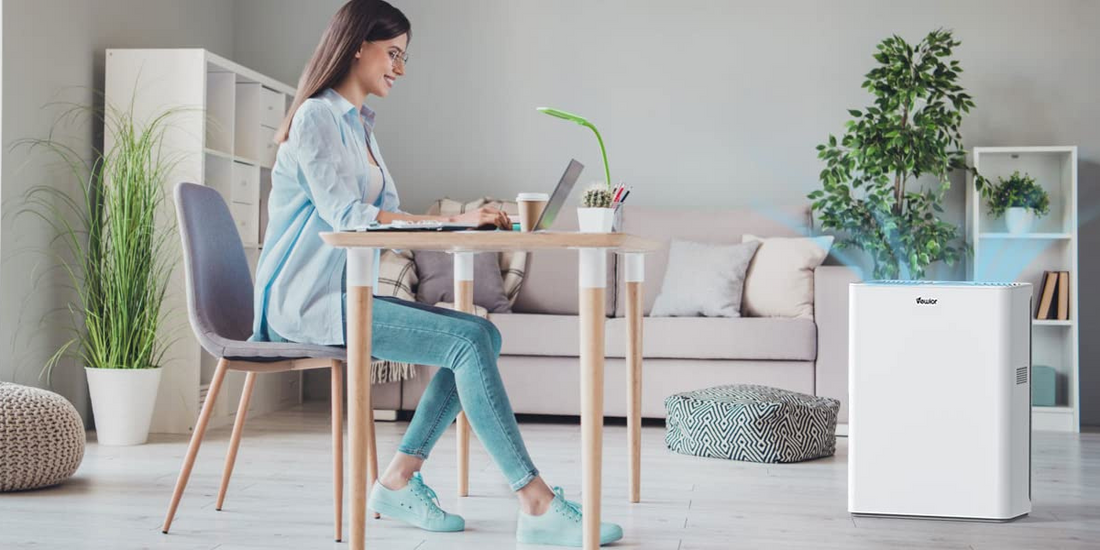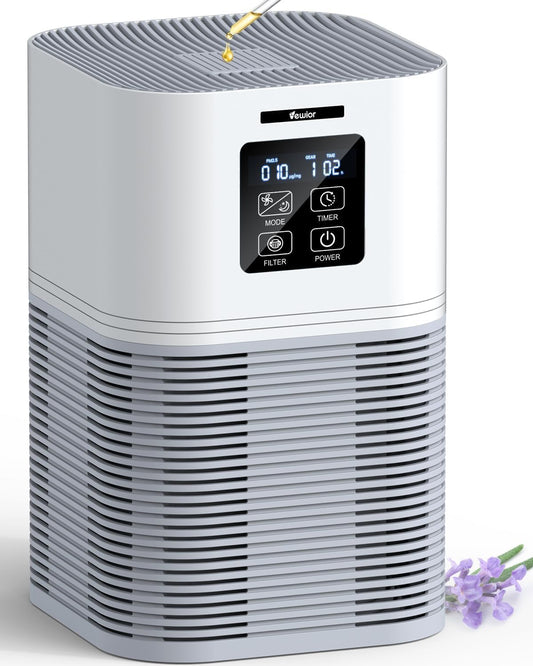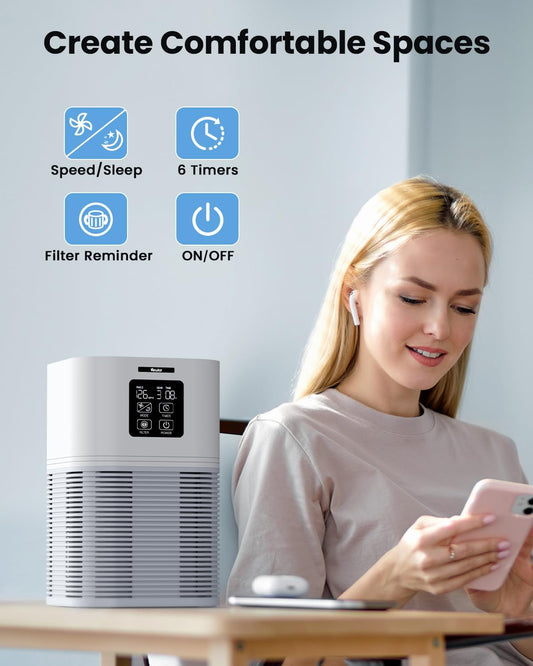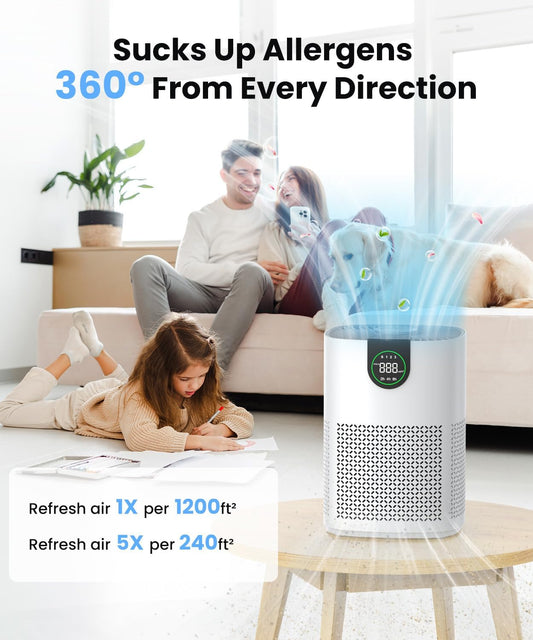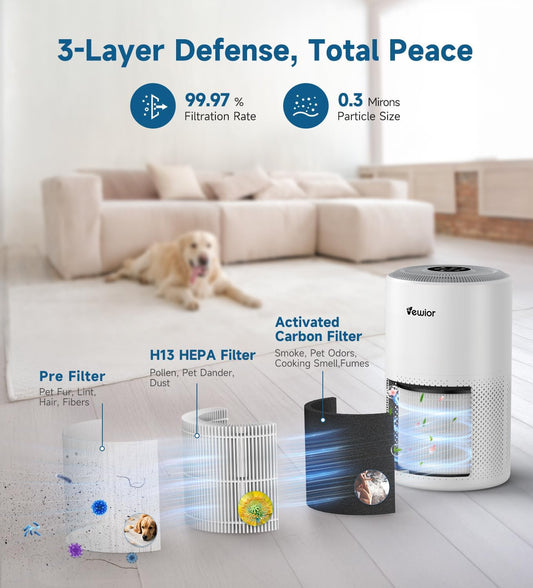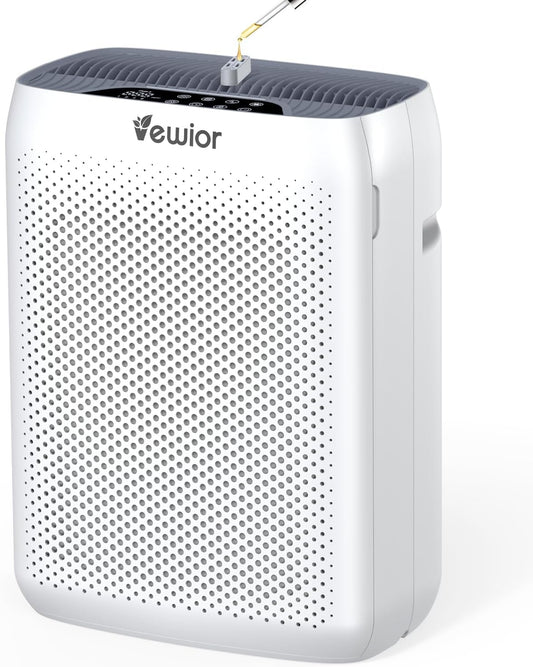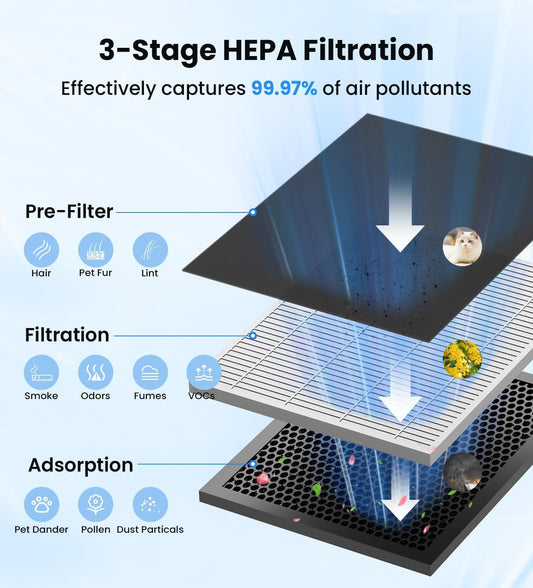What are the benefits of using an air purifier? Creating a healthy and clean indoor environment. With indoor air often being more contaminated than outdoor air, it's crucial to take proactive measures to safeguard our health. This is where air purifiers come into play. These devices offer a range of benefits that can significantly improve the air quality in our homes and workplaces. In this comprehensive guide, we will explore the numerous advantages of using an air purifier, from reducing allergens to eliminating harmful pollutants. Let's dive in and discover how these devices can create a healthier and cleaner indoor environment.
1. Reduction of Allergens and Asthma Triggers
Allergens like dust mites, pollen, pet dander, and mold spores can trigger allergies and worsen asthma symptoms. Air purifiers equipped with high-efficiency particulate air (HEPA) filters can effectively capture and remove these allergens from the air. HEPA filters have the ability to trap particles as small as 0.3 microns with an efficiency of 99.97%, significantly reducing the presence of allergens and providing relief to allergy and asthma sufferers.
2. Elimination of Harmful Airborne Particles
Airborne particles such as fine dust, bacteria, viruses, volatile organic compounds (VOCs), and smoke can have detrimental effects on our health. Air purifiers employ advanced filtration technologies, including HEPA filters, activated carbon filters, and UV germicidal irradiation, to trap and eliminate these harmful pollutants from the air. This ensures that the air we breathe is cleaner and safer.
3. Improved Respiratory Health
Breathing clean air is essential for maintaining optimal respiratory health. Air purifiers remove respiratory irritants such as dust, pollen, and smoke particles, which can cause respiratory discomfort and compromise lung function. By reducing exposure to these irritants, air purifiers can help alleviate symptoms of respiratory conditions like bronchitis, sinusitis, and allergies, promoting healthier respiratory function and overall well-being.
4. Odor and Chemical Control
Unpleasant odors from cooking, pets, and household chemicals can linger in our living spaces, affecting our comfort and well-being. Air purifiers equipped with activated carbon filters excel at absorbing and neutralizing odors, including those caused by smoke, pets, and cooking. Additionally, these filters can effectively remove volatile organic compounds (VOCs) emitted by household products, paints, and cleaning agents, contributing to a fresher and healthier indoor environment.
5. Enhanced Sleep Quality
Clean air plays a vital role in promoting a restful sleep. Airborne particles and allergens can cause nasal congestion, sneezing, and coughing, leading to disrupted sleep patterns and reduced sleep quality. By using an air purifier in the bedroom, you can create a cleaner and allergen-free sleeping environment, allowing for a more peaceful and rejuvenating sleep experience.
6. Improved Cognitive Function and Productivity
Poor indoor air quality can negatively impact cognitive function, productivity, and overall mental well-being. High levels of indoor air pollutants can lead to symptoms such as headaches, fatigue, difficulty concentrating, and decreased productivity. By removing harmful particles and improving air quality, air purifiers contribute to a healthier indoor environment, promoting better cognitive function, increased focus, and enhanced productivity.
7. Creation of a Cleaner and Healthier Environment
Consistently using an air purifier can help maintain a cleaner and healthier living environment for you and your family. By reducing dust, pet dander, and other airborne particles, air purifiers minimize the accumulation of these pollutants on surfaces, resulting in improved cleanliness throughout the space. This not only reduces the need for frequent dusting and cleaning but also creates a more pleasant and hygienic living environment.
8. Protection Against Secondhand Smoke
Secondhand smoke is a significant health risk, containing numerous harmful chemicals and particles that can be inhaled by non-smokers. Air purifiers with specialized filters and activated carbon technology can effectively capture and remove smoke particles and odors from the air, reducing the exposure to secondhand smoke and its associated health hazards.
9. Prevention of Airborne Diseases
Airborne diseases can spread through tiny droplets or particles in the air, making it crucial to maintain clean indoor air to prevent the transmission of illnesses. Air purifiers equipped with UV germicidal irradiation technology can help eliminate bacteria, viruses, and other microorganisms from the air, reducing the risk of airborne infections and promoting a healthier environment.
10. Reduction of Pet-Related Allergens
Pets bring joy to our lives, but their presence can also contribute to indoor allergens. Air purifiers with HEPA filters effectively capture pet dander and hair, reducing the allergenic particles in the air. This is especially beneficial for individuals with pet allergies or sensitivities, allowing them to enjoy the companionship of their furry friends without experiencing allergic reactions.
Conclusion
The benefits of using an air purifier in your home or workplace are numerous and impactful. From reducing allergens and asthma triggers to eliminating harmful pollutants and improving overall air quality, these devices play a vital role in creating a healthier and cleaner indoor environment. By investing in an air purifier, you can enhance respiratory health, alleviate allergies and asthma symptoms, improve sleep quality, and enjoy the benefits of fresh and pure air. Choose an air purifier that suits your specific needs, considering factors such as filtration technologies, room size, maintenance requirements, and additional features. Take control of your indoor air quality, prioritize your well-being, and breathe easier with the help of an air purifier.

